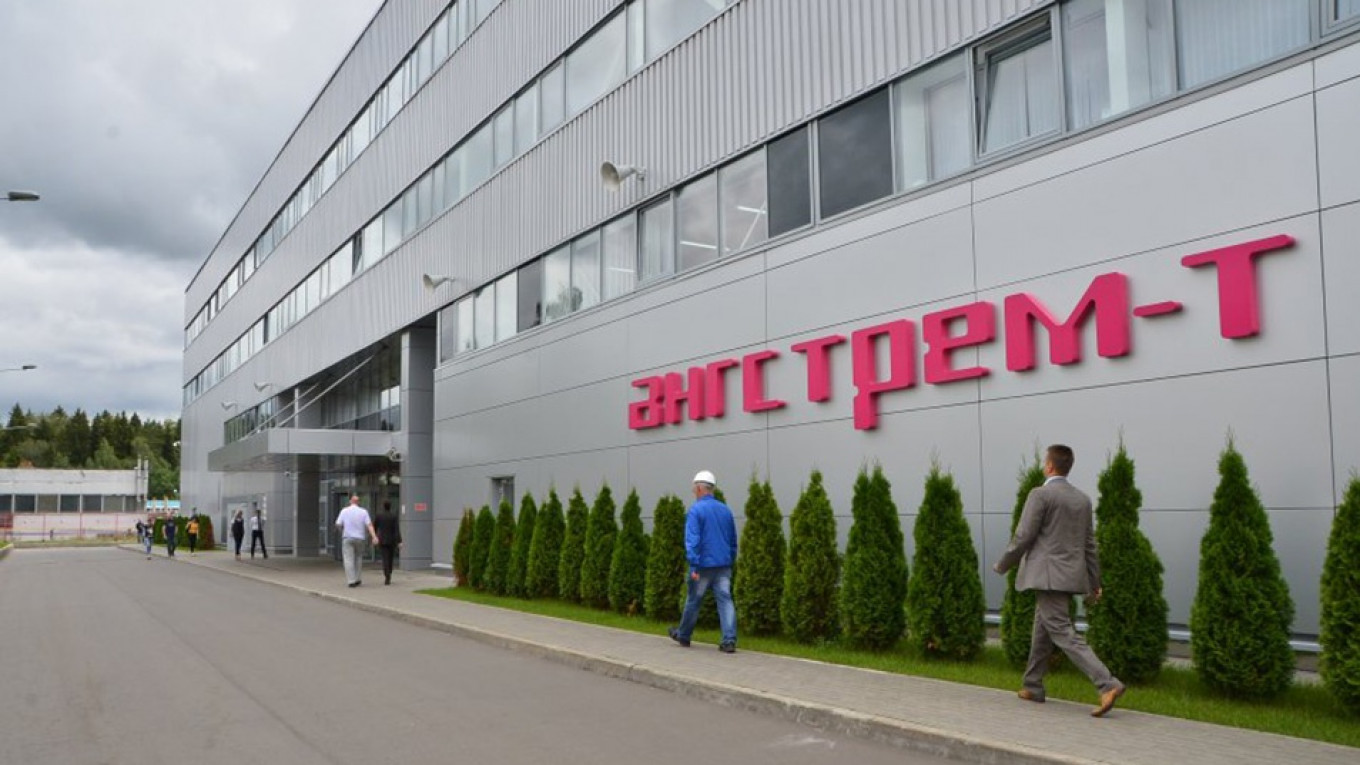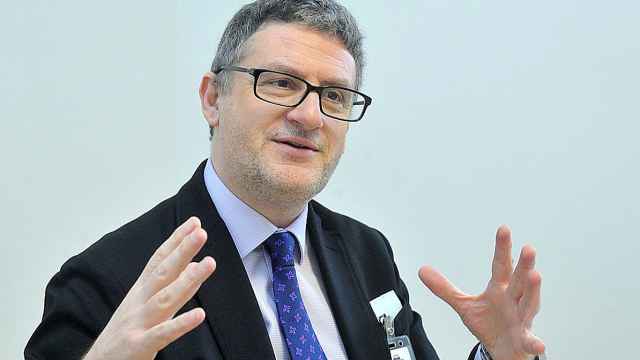U.S. sanctions targeting Russia's nascent high tech industry have caused a Russian microchip company significant financial woes and delayed the launch of an initiative meant to produce substitutes for Western products,the firm's owner said.
President Vladimir Putin has stressed the need to develop Russia's domestic tech industry to make it less dependent on Western equipment. But Moscow's efforts to manufacture Russian microchips and other high tech products have been thwarted by U.S. sanctions against a string of Russian tech companies.
Angstrem-T, which makes semi-conductors, has accumulated significant debts and is set to be taken over by state development bank VEB after failing to reimburse an 815-million-euro ($944.75 million) loan dating back to 2008, said Leonid Reiman, chairman of the company's board of directors.
Reiman, Russia's former minister of communications and information technologies, said the company's inability to reimburse its debt was in part tied to U.S. restrictions on the import of dual-use technologies and its addition to U.S. Treasury sanctions in 2016.
The U.S. moves were prompted by Russia's annexation of Ukraine's Crimean peninsula in 2014 and its support for separatist rebels in eastern Ukraine. It has imposed further sanctions against Russia since 2016 over other issues.
Prior to the sanctions Angstrem-T purchased most of its equipment from U.S. multinational firm Advanced Micro Devicesand bought a licence from IBM to produce chips.
The company is heavily reliant on U.S. products, but the sanctions now bar it from doing business with U.S. firms.
"Although we initially received the (U.S.) State Department's consent for this project and the delivery of the technology here, the sanctions caused the deadlines for its completion to be drawn out," Reiman told Reuters.
"The factory is working, the products are being produced, but the question of procurement remains."
VEB, which Reiman said could become the majority owner ofAngstrem-T by the end of the year, declined to comment.
Import substitution
When Angstrem-T began producing its first chips in 2016 after nearly a decade of false starts and delays, Prime Minister Dmitry Medvedev depicted the initiative as a way Russia could surmount already existing U.S. sanctions.
"It's good that we are starting to produce these ourselves," Medvedev said at the factory's opening, a month before Angstrem-T itself was targeted by the U.S. sanctions. "It's a question of import substitution."
Reiman would not disclose the magnitude of Angstrem-T's debt. According to a Russian database that aggregates company data, the firm had 87.4 billion roubles ($1.34 billion) in debt last year. During the same period it recorded revenues of 101 million roubles ($1.54 million).
A source in the field of microelectronics in Russia said the sanctions and repeated delays in the project had caused Angstrem-T's products to become outdated.
The market for the 90 and 130-nanometre microchips it produces has significantly shrunk in recent years, according to the source.
A draft Russian government roadmap for the development of the microchip industry seen by Reuters says that once VEB's takeover is complete, Angstrem-T should shift its production to the more modern 28-nanometre chips.
Such chips are used in products made by companies like Apple, Samsung and Sony.
The ministry has for several years lobbied for Russia to build a modern microchip plant, but to no avail.
A Message from The Moscow Times:
Dear readers,
We are facing unprecedented challenges. Russia's Prosecutor General's Office has designated The Moscow Times as an "undesirable" organization, criminalizing our work and putting our staff at risk of prosecution. This follows our earlier unjust labeling as a "foreign agent."
These actions are direct attempts to silence independent journalism in Russia. The authorities claim our work "discredits the decisions of the Russian leadership." We see things differently: we strive to provide accurate, unbiased reporting on Russia.
We, the journalists of The Moscow Times, refuse to be silenced. But to continue our work, we need your help.
Your support, no matter how small, makes a world of difference. If you can, please support us monthly starting from just $2. It's quick to set up, and every contribution makes a significant impact.
By supporting The Moscow Times, you're defending open, independent journalism in the face of repression. Thank you for standing with us.
Remind me later.






